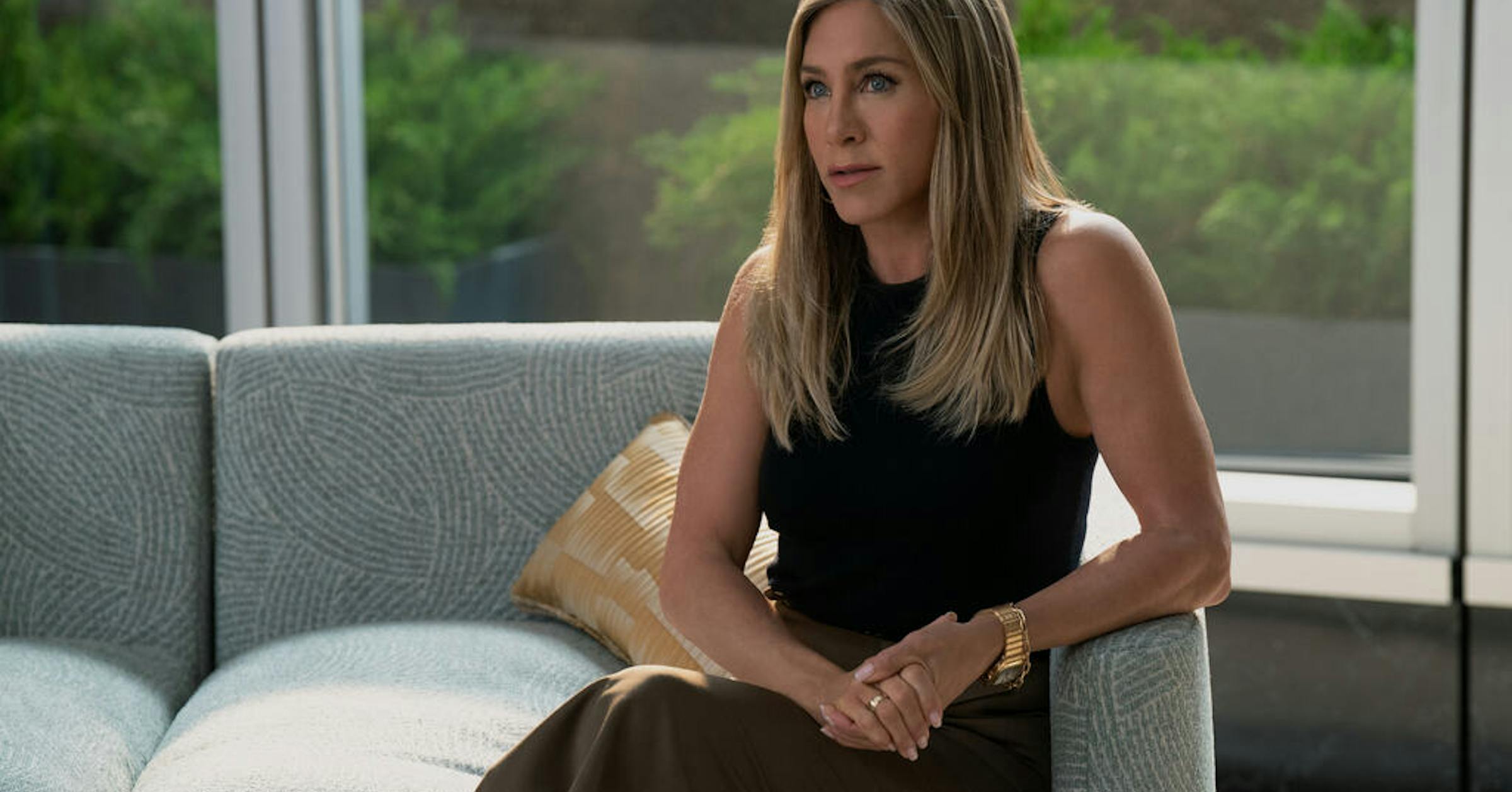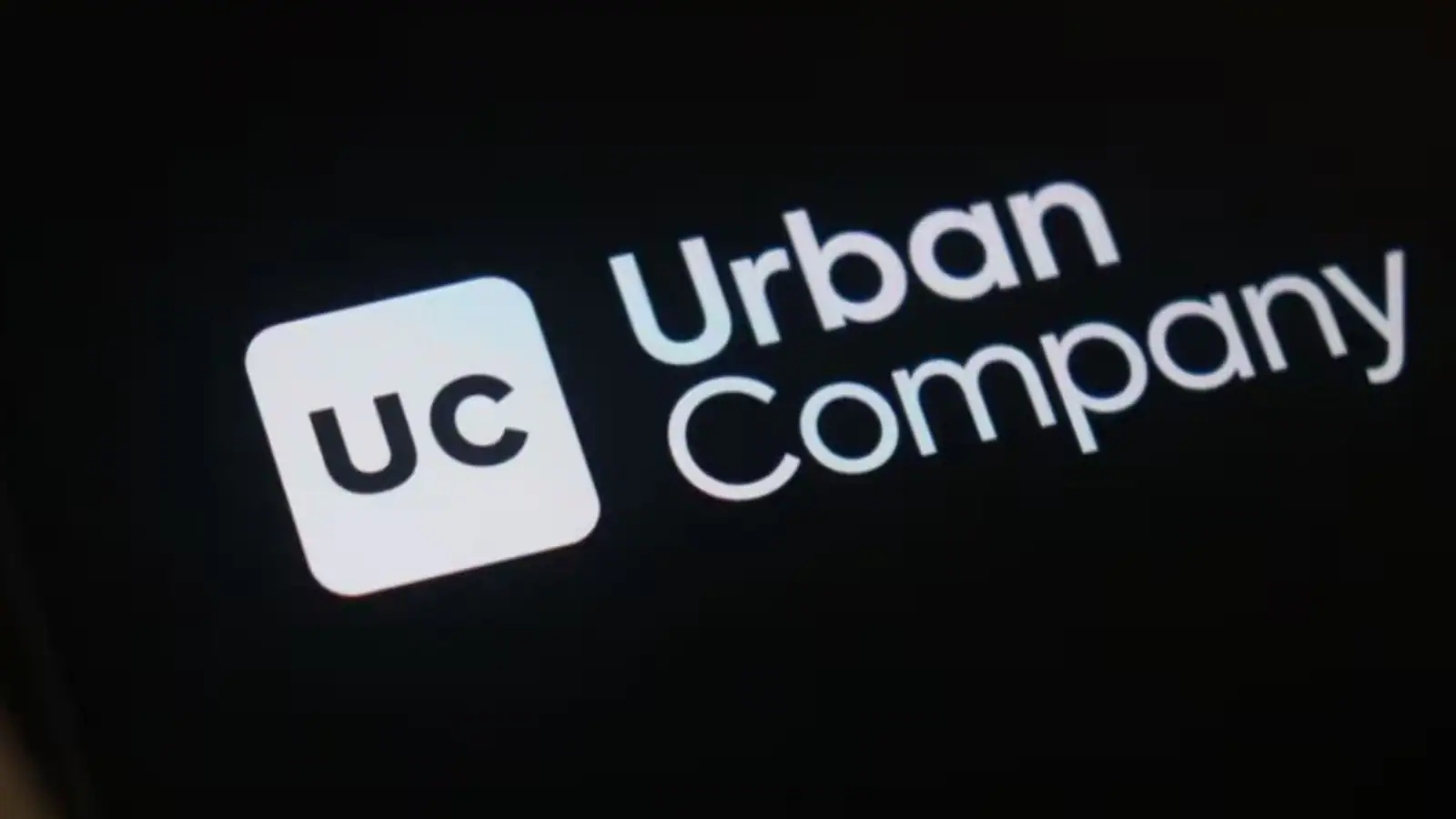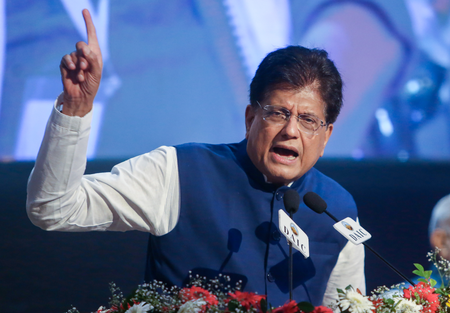
Some of them, anyway. Former TMS anchor Alex Levy (Jennifer Aniston) is finally in charge, having architected a merger of networks UBA and NBN together with Stella Bak (Greta Lee), who starts the season as CEO of the new network, UBN. The show picks up two years after the events of Season 3, with Stella and Alex running things alongside UBN board president Celine Dumont (Marion Cotillard), a fabulous new villain in the “Morning Show” universe.
Alex and Stella aren’t loving their newfound power. The political landscape is mutating, the numbers are bad, and Celine — whose visionary drive and devious stratagems rival those of former UBA chief executive Cory Ellison (Billy Crudup) — manages the unstable triumvirate they form through questionable compromises and trades. Result: Everyone’s looking for “leverage.” If the show’s older seasons were soapy, this one is downright operatic.
Viewers will recall that last season’s space shenanigans crashed down to earth when Bradley Jackson (Reese Witherspoon) revealed to Alex that the latter’s Elon Musk-type billionaire boyfriend Paul Marks (Jon Hamm) was surveilling them both and using the information he had acquired to silence her. Alex accordingly thwarted Marks’s takeover of UBA with help from Stella, who obtained damning evidence of his malfeasance from an old friend she tracked down in a zombie-hunting video game. (Got all that?) In the course of an afternoon, the ladies blackmailed Marks into withdrawing his bid, set up a potential merger between corporate behemoths UBA and UBN, and presented it to the board as an alternative to the merger with Marks’s company, Hyperion. Efficient!
Now an avatar for radical transparency, thanks partly to the success of her streaming show, “Alex Unfiltered,” Alex sadly dumps Marks and encourages him to “come clean to NASA” about masterminding the UBA hack to distract from a technical malfunction at the rocket launch. She also walks Bradley to the Jacob K. Javits Federal Building to confess to the FBI that she deleted evidence of her brother Hal’s activities on Jan. 6. What of Cory, the silver-tongued, morally gray executive with a heart of gold? Well, the series that began as a #MeToo megaphone ended its third season by showcasing how someone might exploit false claims: Cory ends up ousted from the network while being investigated for sexual harassment.
“The Morning Show” is to drama what “Only Murders in the Building” is to whodunits: an excuse to splash around in a genre without getting bogged down in the details. The show’s original premise — the predatory work environment of a frothy morning talk show — was in hindsight hilariously pretextual. Remember when the focus was on the overworked, powerless underlings? Remember when the show focused on the abusive dynamics that celebrity culture creates downstream, and how that toxicity culminated in the suicide of UBA head booker Hannah Shoenfeld (Gugu Mbatha-Raw)?
The series doesn’t because that’s frankly kind of a bummer, and besides, “The Morning Show” loves celebrities. Like Cory, who started off as the antagonist but quickly stole the spotlight, the series is too much of a bon vivant to stay bummed for long. Plus, it finds its villains charming. Those mesmerizing bouncing balls in the opening credits neatly capture the show’s real interest — namely, the thrilling spectacle of power players in motion. Outcomes matter less than “Succession”-style reversals. Sure, the show occasionally feints at topical questions such as climate change, censorship, etc., but it revels in ploys and traps and (especially) illicit love affairs. Heck, it’s barely about the morning show anymore. Now it’s about “the network.” And the travails of the super-rich. And journalism, a little bit.
Set in the spring before the 2024 presidential election, the new season opens with Bradley — who is not in prison! — teaching at a community college in West Virginia. Cory, head bloody but unbowed, has turned to filmmaking but hits a snag when the Los Angeles fires interfere with an action sequence. Stella showcases her pet project, an AI program that turns Alex and the anchors into avatars who can deliver the news in dozens of languages just in time for the Olympics. And Alex is dealing with staff blowback following a wave of layoffs. She’s also struggling to stomach Stella and Celine’s decision to court right-wing conspiracy theorists via a Joe Rogan-style “manosphere” podcaster named Bro Hartman (Garrett Hedlund). Fans of Alex’s longtime assistant and devoted friend Chip Black (Mark Duplass) will be pleased to know he’s free and living his best life as a maker of respectable documentaries. One of the new season’s chief pleasures is watching him get in a few solid digs at his former boss.
It’s a big canvas with a lot of characters; to the show’s credit, most of them get meaty storylines. (I except William Jackson Harper, who plays Ben, Mia’s rival for head of news, and deserved more.) Mia’s arc, which I won’t get into here, is a delightful departure from her customary suffering as a competent workhorse for the network; Pittman is clearly having a blast. Chris has to come to terms with her past, Yanko reckons with his romantic history, and longtime careerists Alex and Cory contend with their legacies and with their own aging parents. (Jeremy Irons plays Alex’s narcissistic father, an academic still hoping to become dean.)
Because Lee’s Stella is one of the show’s most compelling characters, it pains me to note that the show botches an otherwise interesting arc by depending on ponderous voice-overs that feel more like curated productions than genuine self-talk. Getting at her interiority was never going to be easy, but the gambit might have worked better as a series of increasingly challenging conversations between Stella and her AI avatar (a format the show deploys twice to great effect).
The newcomers are excellent. Cotillard fits so seamlessly into the show’s world that it feels like she’s always been there. Hedlund, who winds up as a love interest for Alex, provides an unexpectedly charming counterpart to Marks’s more transactional approach to high-powered romance. That said, both men benefit this season from the show’s compulsion to humanize its antagonists so thoroughly that you end up liking them more than the “good” guys. (A version of this happened with Steve Carell’s Mitch Kessler, initially the villain of the piece, and it’s certainly how Crudup’s Cory came to feel like the show’s main character.)
It’s hard to know what to say about Bradley, but the show is at least consistent about her function: She never quite fits and spends yet another season agonizing over an unwinnable ethical conundrum. Let’s just say she ends up — as always — betraying someone she loves and catalyzing some of the show’s biggest and strangest swings.
Look: “The Morning Show” has nothing serious to say. It knows that, even as it manages to sustain a constant in-universe sense of emergency. There’s an appealing, almost nihilistic self-awareness to how unapologetically the series bills itself as a campy confection about sad and stressful things. Four seasons in, it remains shallow, glossy and awfully entertaining. Like the talk shows it apes, which pivot seamlessly from tragedy to puppies, it understands the value of lightness.



